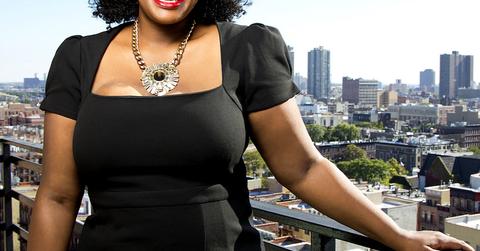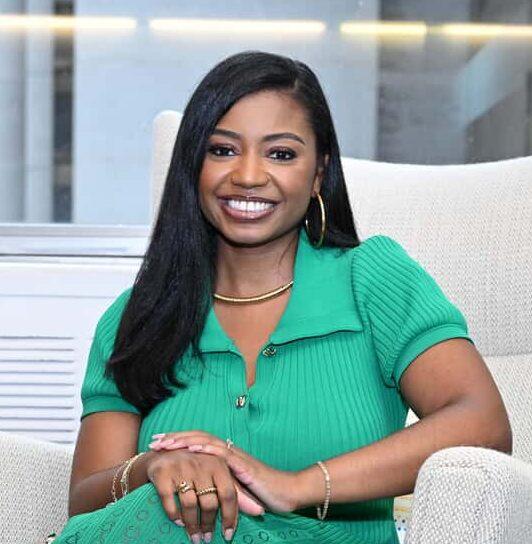A report titled, The Real Unicorns of Tech: Black Women Founders revealed that only 24 startups out of the 10,238 companies that raised venture capital funding from 2012 through 2014 were founded by Black women. This means only .2 percent of venture funding went to Black women founders.
We know this because after years of only having anecdotal evidence about the hardships Black women founders face, one organization took the lead on generating actual data to quantify the problem.
The woman behind the report is Kathryn Finney, the founder and Managing Director of digitalundivided (DID), a social enterprise that finds, supports, and trains urban tech entrepreneurs. #ProjectDiane is the research arm of digitalundivided and the data from that report was the beginning of a call to action.
On March 13th, at South by Southwest (SXSW), Finney announced the launch of the BIG innovation center in Atlanta, funded by a grant from the U.S. Small Business Administration. The center will house the BIG Accelerator. The plan is to invest at least $50,000 into each of the 15 companies who are accepted into the program. Entrepreneurs can apply for the first class starting this May.
Finney is also a partner in The Harriet Fund, a first of it’s kind fund dedicated to investing in companies led by Black and Brown women. On top of that, Finney along with Gayle Jennings O’Byrne, a seasoned investor with over 20 years of investment experience created a syndicate called Harriet Angels.
When it comes to tech and entrepreneurship. there’s a lot of people who talk (or blog) about making change without actually doing anything fundamental. Finney is not one of them.
An honors graduate of Yale University, Finney is no stranger to the world of tech and entrepreneurship. Her father was one of the first African-American software engineers in the U.S. and he went on to become an executive at Microsoft. In 2003, she started one of the first lifestyle blogs: The Budget Fashionista. TBF eventually was sold to Speak Media, again, one of the first deals of its kind.
Since then, Finney’s work with digitalundivided received numerous honors including the Champion of Change Award from the White House, the New York Business Journal’s Women of Influence Award, SXSW Black Innovator Award, The Grio 100, Ebony Power 100, and Black Enterprise’s “40 under 40” list.
Now, Finney is continuing to put in the work to make sure that more women of color get the investment they need to grow and scale their companies.
Her Agenda: Do you have a motto that you live by?
Kathryn Finney: The one that is most guiding for me is a quote from Marianne Williamson. She said [essentially that] when you shine bright you give other people the permission to do the same.
That guides me. Particularly [as] Black women, we are rarely are given the opportunity to shine. So, by me doing this and doing the work and everyone [around me] doing the work ––I couldn’t do this without the squad–– by us being great and doing well, we give others permission to do so as well.
Her Agenda: What motivated you to start something that helps Black entrepreneurs?
Kathryn Finney: I started off as a fashion blogger, one of the first fashion bloggers. There were not a lot of Black women or Black people blogging, this was almost 13 years ago. After about four years of doing the blog I had an idea to do a start-up and I went to one of the first incubator programs in New York City and it was probably the worst experience of my entire life. It was the only time in my life where I felt that people had very low expectations for me 100 percent because I was a Black woman.
It wasn’t me imagining it. I was told literally that I would not be given any money because they did not know of a venture capitalist who had ever written a check to a Black woman before. I was told that point blank to my face.
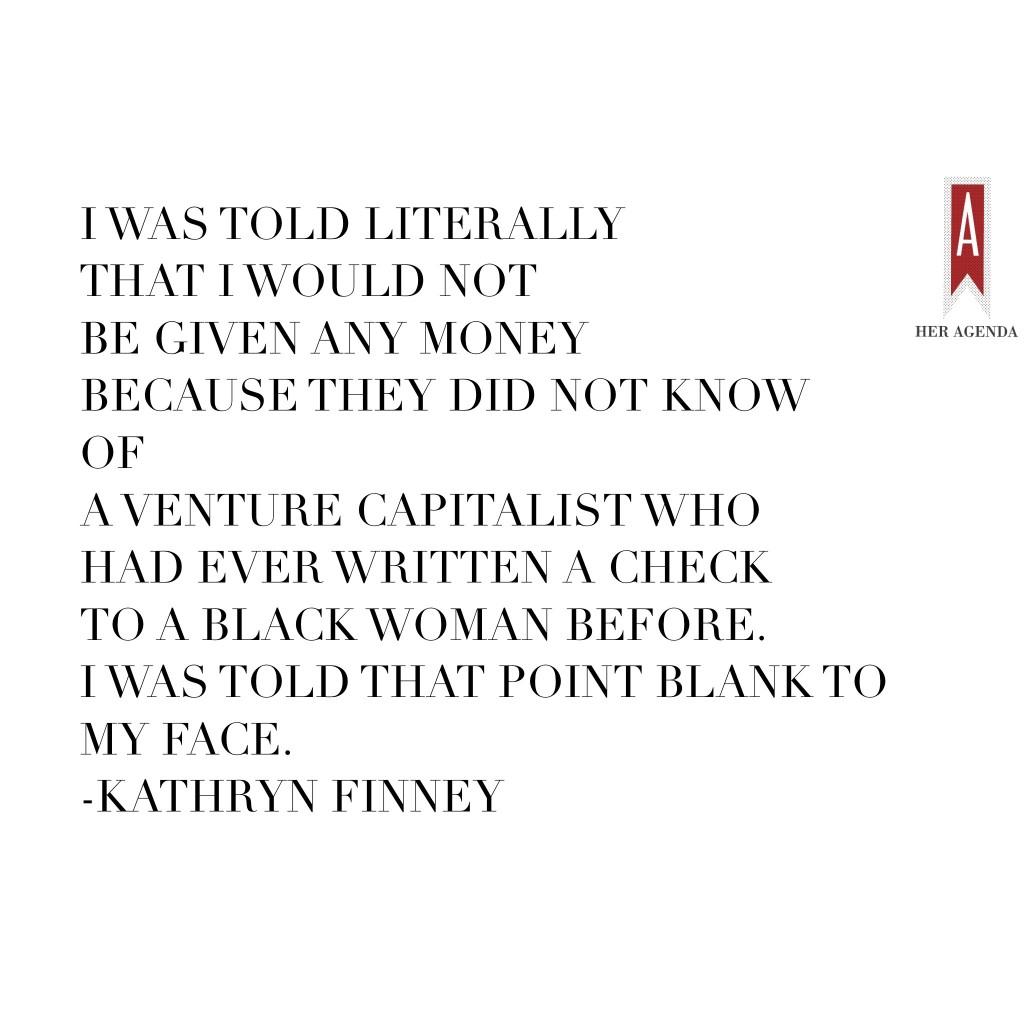
After going through that experience in 2006, I came onto BlogHer as the editor-at-large. I was doing a lot of speaking and noticing that there were no Black people at the conferences I was going to. I remember going to South by Southwest [back in 2007] and [seeing maybe] 50 Black people. Numbers that were just mind boggling. We were just not there, but I knew there were Black people in tech. There was a disconnect going on. From there, I came up with the idea for the first FOCUS conference which we held in 2012. Then that FOCUS conference led to digitalundivided the company.
Her Agenda: In what way is BIG Accelerator the solution to the problems identified through #ProjectDiane?
Kathryn Finney: It is the solution because of the things that we highlight. One [thing is] redefining entrepreneurship. We are currently doing that. We know that in the Black community entrepreneurship is a dirty word. It [happens] at every level from the hood [to] corporate board rooms. So one of the things that we are doing is already inherently big just by existing.
Not only [are we] saying, here’s a space for women of color entrepreneurs, but we are also giving you money, real money to create your company. It sends a signal out to the community that before the company is successful, somebody finds women of color startups valuable.
We know that funding is a huge problem ––particularly at the seed level it is a big problem for Black women. Approximately 11 verified, 15 total Black women have raised over one million dollars in venture funding. Some people think that one million dollars is a lot, but it’s a really little amount in the whole scheme of venture capital, especially when you have companies raising one billion or 780 million. One million dollars is really small. What we found is that Black women are raising an average of 36,000 dollars, where failed startups that are mostly led by white men raise an average of 1.3 million dollars. So, we are not even raising enough money to fail properly.
!["Not only [are we] saying, here’s a space for women of color entrepreneurs, but we are also giving you money, real money to create your company. " -Kathryn Finney via Her Agenda](https://media.heragenda.com/brand-img/774/0x0/wp-content/uploads/2016/03/Photo-Mar-28-11-18-54-PM-1024x917.jpg)

Her Agenda: Tell me more about the investment piece of what you’re doing.
Kathryn Finney: We have a fund that we are raising. It is led by Gayle Jennings O’Byrne and it’s called the Harriet Fund, named after Harriet Tubman. It is to invest in companies led by Black and Brown women, the first fund of its kind. We also have an angel syndicate called the Harriet Angels which invests in Black and Brown women. I’m an investor in the syndicate, Gayle is leading it. We have other folks that we’re bringing in as well; we are directly addressing this seed funding issue in our community. We are also giving people a path to invest. We found that people actually want to help, they just don’t know how.
When we were starting the fund we had a lot of people saying, ‘why don’t you go to rich Black people…go to Oprah?’ Well, that’s like me telling you to go to Bill Gates. There are very few Black folks that are liquid. Most who have money, they have it in property, so it’s not liquid. You may be worth one million dollars, but that million dollars are tied up in a whole bunch of stuff that you would have to sell in order to get to one million dollars.
Also, because of the SCC rules, very few Black folks can qualify as an accredited investor which is a huge issue for us.
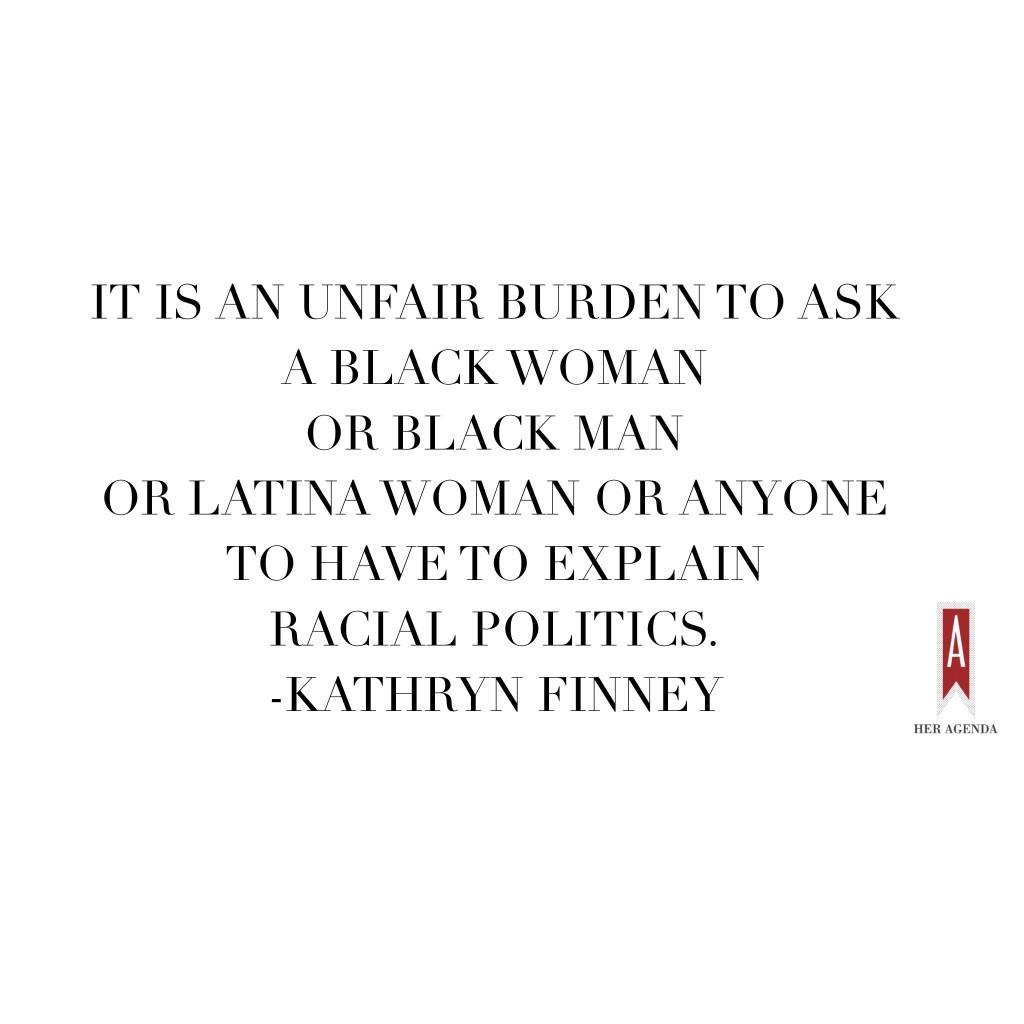
Her Agenda: There are promising entrepreneurs that tick all the boxes and still are not getting funding. I’m also a black woman entrepreneur raising funding and it’s blows my mind sometimes speaking with even Black investors who expect a certain level of traction or benchmarks to have been hit when essentially what we’ve done is above and beyond what most startups have done. What can Black women entrepreneurs do to navigate these conversations or shift the perception when it comes to educating those across the table how to perceive our companies?
Kathryn Finney: The advice that I give our FOCUS Fellows who were part of our program that we ran for three years is this: there are very few people that have actually written a check to a Black woman, focus on those people. The other people, you don’t have the time as an entrepreneur to do a racial education class, you just don’t. You don’t have the time because you are trying to raise and build your company. It is an unfair burden to ask a Black woman or Black man or Latina woman or anyone to have to explain racial politics. There was a fellow who has been quite successful, she raised about $3 million, who was telling me that she went to one meeting and 45 minutes of the hour that she had was spent answering questions on her background and how she got to actually come up with the startup. Not about the startup, not about the business model, not about her market, not about her technology, it was all about how she was able to get into that room. They basically wanted to know ‘how could someone Black do this?’ That’s what they wanted her to explain to them. I told her never to take a meeting like that again. That’s a waste of your time. So for an entrepreneur, particularly a Black woman entrepreneur, it’s finding those people who have already invested.
Another thing I notice with us [Black women] is that we are so introverted, we don’t talk enough amongst each other. Here’s the thing, and this is something we try really hard to do with our Focus Fellows, is create this space where we give each other advice.
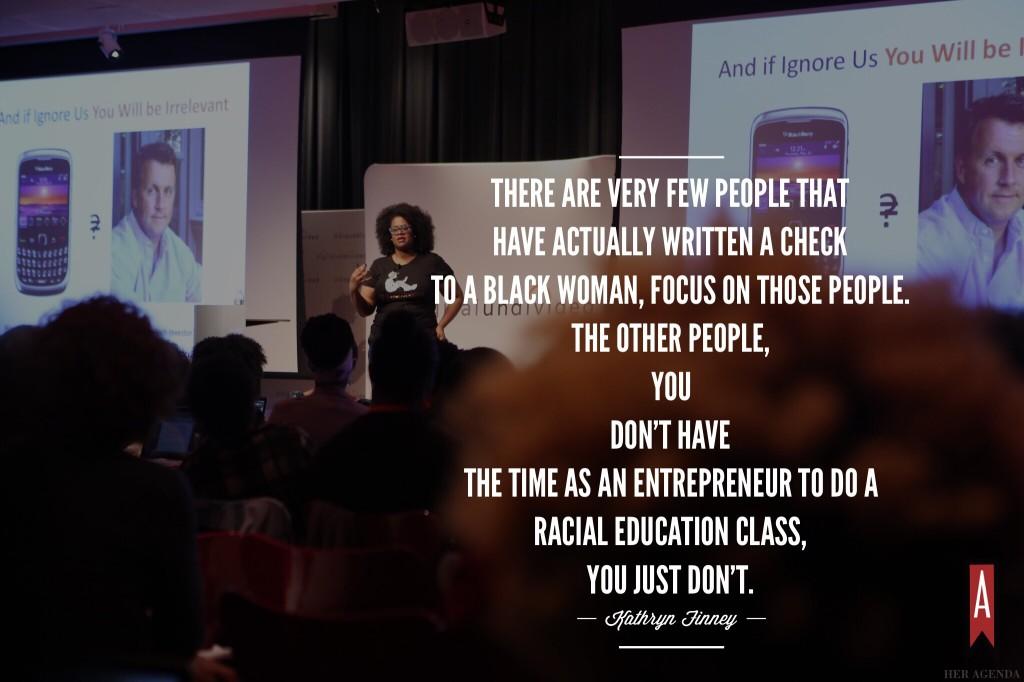
Her Agenda: In #ProjectDiane, the report mentions ‘cultural and structural challenges that Black women face as startup Founders.’ What specifically comes to mind in terms of what those challenges are?
Kathryn Finney: There’s problem with entrepreneurship and not understanding equity within [the Black] community, that’s a cultural issue. I was having an interesting conversation about how sometimes in our community we will fund the bad stuff. Someone is in jail, we will pull together money to get them out of jail, but if you are running a Kickstarter for Her Agenda, the question becomes, why does she need money? We feel if you’re doing well then you don’t really need it ––whereas, those are the people who need our support even more.
Then also, we don’t see ourselves as leaders in this space. It’s really interesting because the way tech has been marketed towards us is as employees, but not as creators. Example: go to a local bootcamp and get a job making $80,000 a year. You think making $80,000 per year is a lot and it is if you were making $20,000 before, but you have to understand that in the context of tech when you say $80,000 people are laughing because the average job at Google is not $80,000. That’s what the receptionist makes. The engineers are making at a minimum $160,000-$180,000. When I was saying that for a graduation class of a [tech] bootcamp here in New York they were were in disbelief.
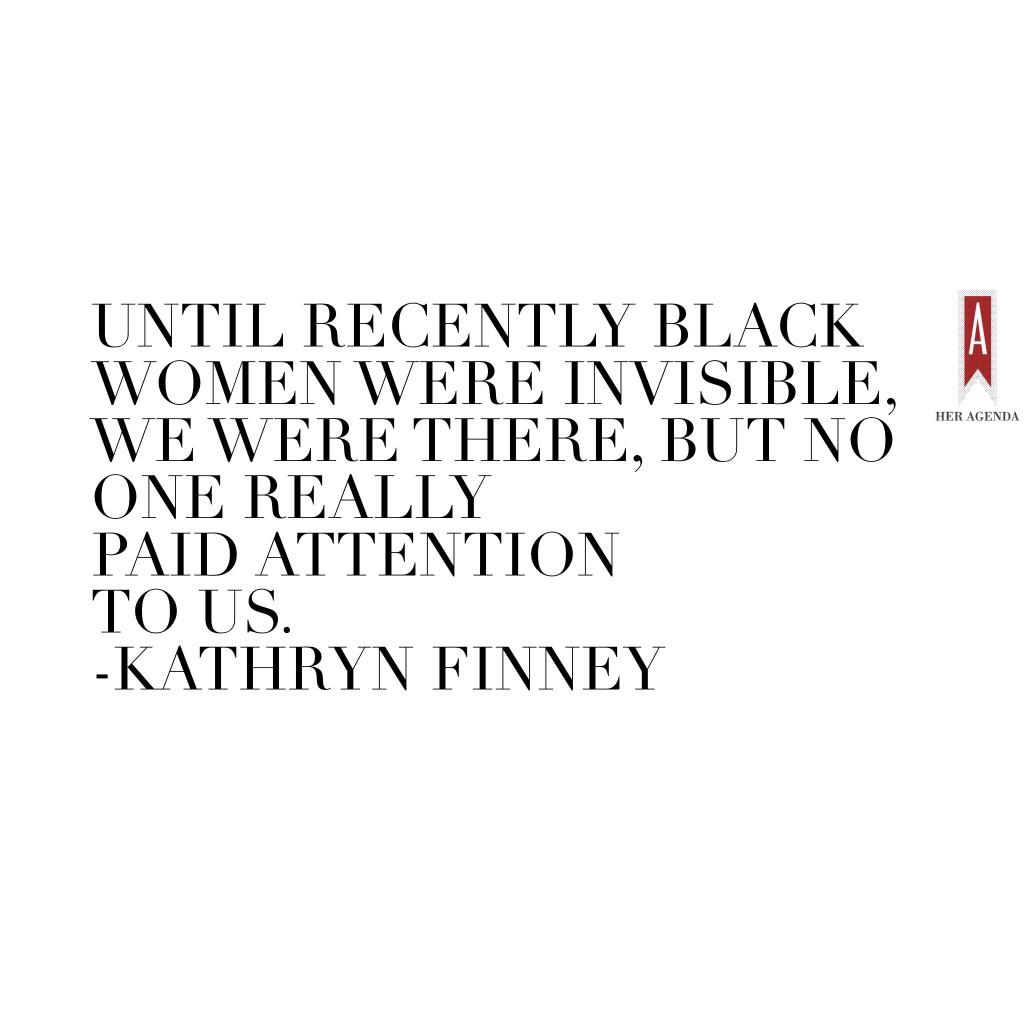
Her Agenda: When it comes to the concept of women in tech — Black women are left out… why is visibility so important and why does it continue to be an issue?
KF: Until recently Black women were invisible, we were there, but no one really paid attention to us. Black men have a natural path to being leaders which is through sport and through music. So, in Silicon Valley a lot of the guys who are there grew up with Michael Jordan being their hero and listening to Jay-Z, Michael Jackson, Tupac, Biggie, all of that. There are no comparable women figures for them. They didn’t grow up with a Black woman being the poster child for womanhood. So, it’s been very interesting to see that. Black men as leaders isn’t something foreign to them, but it is.
So, when you’re a Black women and you show up it is like, ‘oh snap, why are you here? We didn’t expect you.’ They are just not used to it culturally. Also, I do think that tech wants diversity, but they want diverse versions of themselves. They want Black versions of themselves and Asian versions of themselves. That can be a cultural problem for us because very few Black folks in general, but particularly Black women, have the same cultural experiences as a 30-year-old White guy from Stanford. Even the way we socialize, and socialization is a huge part of tech, is completely different.
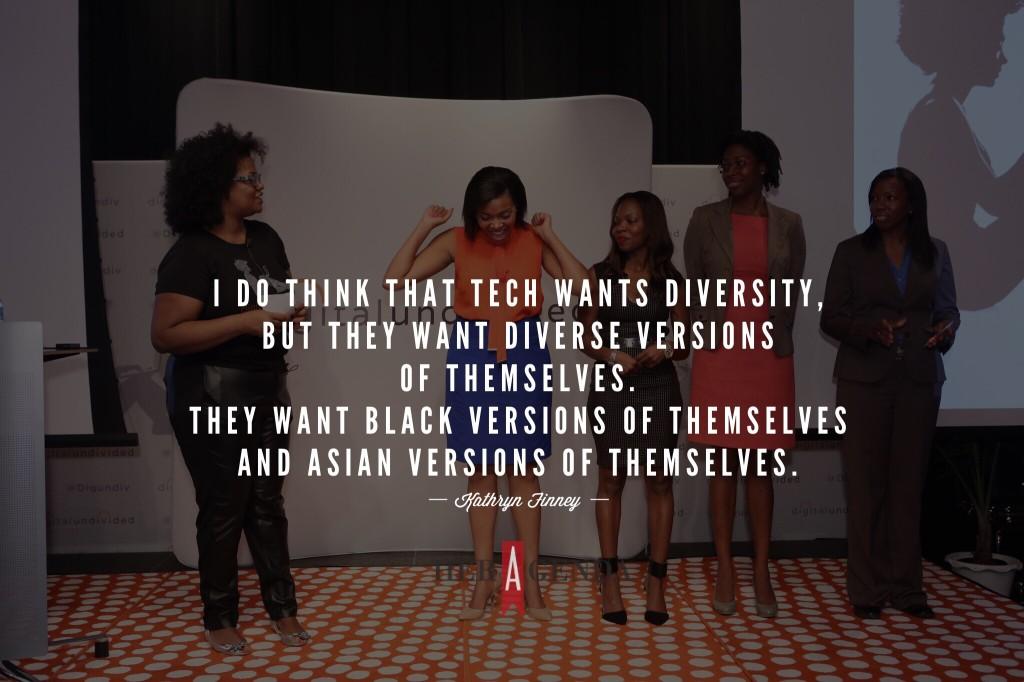
Her Agenda: You were also one of the first lifestyle bloggers and founder of The Budget Fashionista Brand (sold to Speak Media). How did you go about selling it to a bigger media company? What challenges did you encounter during that process and how did you navigate?
KF: We were fortunate because we had a lot of people approach us over the years to buy The Budget Fashionista, so it wasn’t like I went out looking for someone to buy it. We were having people come to us [but] initially I wasn’t ready to sell it. In the early times, I was doing television at that time so I wanted to see what happened with TV and how that sort of landed.
The process of selling a company is really interesting, one of the things that I learned is that due diligence is cray cray. The final sale document, was 32 pages, 10 point font, single spaced, all legalese.
The biggest advice that I can give to people if you are looking to sell your company is to make sure that the company is truly a company and that it can exist without [you] at the helm. Once I decided I would sell TBF we spent three years making sure it could exist without me and that was really important because no one wants to buy a company that can’t exist without the [founder] being there.
!["The biggest advice that I can give to people if you are looking to sell your company is to make sure that the company is truly a company and that it can exist without [you] at the helm." -Kathryn Finney via Her Agenda](https://media.heragenda.com/brand-img/780/0x0/wp-content/uploads/2016/03/Photo-Mar-28-11-20-03-PM-1024x1024.jpg)
The second thing was making sure we had all the documents in order. You have to make sure that your financials are tight and look at everything. A good accountant and bookkeeper is very important. It will save a lot of time. The due diligence is real. I think that’s something that people don’t get.
Black women and women of color is a totally [overlooked] group. People are just learning business intelligence about us and how impactful we are. In the next year or two you are going to see a lot of people coming and wanting to learn more about us and how we operate as a customer segment.
[Editor’s note: This interview has been edited for length and clarity. Published: March 29th, 2016]

